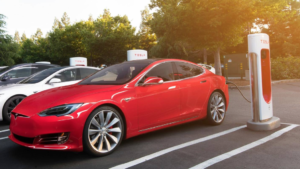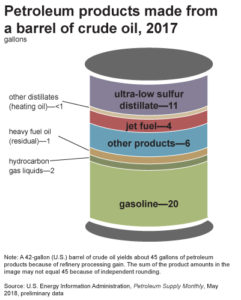The answer to the question seems to have more to do with politics, international treaties and global conflicts then anything to do with the automotive industry.
There are two things we must cover off with this topic.
 Firstly the need for electric cars stems from two driving factors in our community. The climate change debate that has become very prominent in recent years in Australian culture and the supply and demand of crude oil.
Firstly the need for electric cars stems from two driving factors in our community. The climate change debate that has become very prominent in recent years in Australian culture and the supply and demand of crude oil.
So the climate change debate, this is something I am no expert on however only a great fool would argue that the emissions coming out the tail pipe of petrol and diesel power motor cars are not toxic. This chemical concoction causes the death of human beings in confined spaces so surely the billions of vehicles on the face of the earth are causing catastrophic damage to the environment. With global population on the rise and modern medicines increasing our average life expectancy its safe to say the number of vehicles on roads will increase not decrease and thus the need to do something about the ozone depleting chemicals coming from our motor vehicles.
The facts are the technology for combating this have been around for almost thirty years now. Hydrogen powered vehicles to name one as well as doomsday sceptics that have been making vehicles run on water, used cooking oil, pig fat or yack urine for years now. The issue here is if environmentally friendly, sustainable fuel sources enter the main market the crude oil companies go bust.
 Billions of dollars globally are tied up in crude oil (crude oil is used to create petroleum), again not my area of expertise but global conflicts in questionable provinces across the Arab nations begs the question, what are we fighting for? On the surface its a whole lot of sand, what they hell do we want with sand? Buried deep beneath the sand is crude oil.
Billions of dollars globally are tied up in crude oil (crude oil is used to create petroleum), again not my area of expertise but global conflicts in questionable provinces across the Arab nations begs the question, what are we fighting for? On the surface its a whole lot of sand, what they hell do we want with sand? Buried deep beneath the sand is crude oil.
Whilst ever there is this much money tied up in crude oil, the complete electric motor car revolution will not happen. As the resource becomes more and more scarce the price of oil and thus the price of petrol will gradually increase until it is unattainable for the average household. Whilst this is happening the early adopters of renewable energy projects and in this case specifically the electric motor vehicle will continue to innovate. The result of this will be that petrol will gradually become more and more expensive at about the same rate that batteries and generators will become more and more cheap. At some point to the two price structors will bypass one another and there will come a day that the electric motor car will be cheaper than the petrol ones. When this day comes the average household will be buying electric cars for reasonable prices.
One source loosely suggests that currently there is about forty years worth of oil left on earth. The accuracy of this statement is questionable, but makes the point that whilst some sources state that by 2027 cars will be 100% electric, and others state by 2033, no one can argue against the fact that it will eventually happen. One day we will run out of oil and whilst it is more than likely going to be towards the end of my lifetime, it will be within the next generations lifetime.
Exciting or daunting? If you’re willing to embrace change (which fundamentally human beings are opposed to) its very exciting.
No one thought the Wright brothers would succeed but imagine being there with them as they developed man powered flight.
Will it ever be 100% electric cars? Probably not, classic vehicles will always remain and cars driven now may well become collectors items in the future. Either these will be reserved for the extremely wealthy who can afford to pay eighteen dollars a litre to go for a Sunday afternoon spin or companies will develop a different form of petrol. Something synthetic that does the same thing.
Warriewood
-
Unit 3, 13 Ponderasa Pde
Warriewood NSW 2102 - 02 9979 5933
Hornsby
-
2/ 27 King Road
Hornsby NSW 2077 - 02 9987 2818
Will All Cars Be Electric One Day?

Would You Like To Speak With The GDL Team?
Simply choose the option below that suits you best.
OR
Our Locations
Warriewood
3/ 13 Ponderasa Pde
Warriewood NSW 2102
02 9979 5933
Hornsby
2/ 27 King Road
Hornsby NSW
2077
02 9987 2818
Our Services
Follow Our Socials
Our Locations
Warriewood
3/ 13 Ponderasa Pde
Warriewood NSW 2102
02 9979 5933
Hornsby
2/ 27 King Road
Hornsby NSW 2077
02 9987 2818
Our Services
© Copyright GDL Auto 2022 | Website & Marketing By GREENhouse Media
© Copyright GDL Auto 2022 | Website & Marketing By GREENhouse Media
